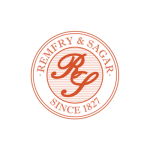Defamation involves harming someone’s reputation by spreading false or malicious statements. In today’s digital world, this has evolved into cyber defamation, where reputational damage occurs online, often via social media or websites, through written or spoken content. As courts navigate the digital terrain of defamation, they must deal with new aspects; for instance, republication of defamatory content via hyperlinks.
The spotlight has shone strongly on online defamation in proceedings brought by news agency Asian News International (ANI) against the Wikimedia Foundation, the parent organisation of Wikipedia, with the Supreme Court of India due to weigh in on the matter shortly.
ANI v Wikipedia
The legal conflict began on July 9 2024, when ANI filed a defamation lawsuit in the High Court of Delhi alleging its Wikipedia page contained inaccurate and defamatory content. Specifically, it took issue with claims describing the agency as a “propaganda tool for the incumbent central government”, accusing Wikipedia of enabling the spread of false information and misinformation. ANI also raised concerns about the page being ‘protected’, which restricted the agency from editing its Wikipedia entry, even as anonymous users retained editing privileges. ANI demanded content removal, a publication ban, and INR20 million in damages.
In response, Wikipedia defended its platform, emphasising its community-driven editing system, where edits are permitted based on verifiable sources and overseen by volunteer moderators.
In August 2024, the High Court of Delhi ordered Wikipedia to disclose the identities of users who had allegedly made defamatory edits, warning of potential blocking in India if the platform failed to comply. In return, Wikipedia agreed to provide basic subscriber information to the court while maintaining user confidentiality.
The conflict escalated in October 2024 when a new Wikipedia page titled “Asian News International v Wikimedia Foundation” was created to chronicle the ongoing legal proceedings. ANI, perceiving this as further defamation, filed a contempt application, which resulted in temporary removal of the page per an order issued by the High Court of Delhi on April 2 2025. But the ruling sparked controversy. Wikipedia argued it hampered free speech and the right to report on court cases, and it appealed to the Supreme Court of India.
Hearing the plea, the apex court clarified that freedom of reporting court proceedings cannot be suppressed just because the judges find the content unpleasant. It emphasised that any direction to remove content must follow a reasoned finding of contempt. The Supreme Court has reserved its verdict on Wikimedia’s appeal and a decision is expected in the coming weeks.
Does hyperlinking to defamatory content constitute republication?
Adding another layer of complexity to the landscape is the debate surrounding the republication of defamatory content through hyperlinks. The High Court of Delhi recently addressed this issue in Ruchi Kalra & Ors v Slowform Media & Ors. Ruchi Kalra, co-founder of unicorn startup OFB Tech Pvt. Ltd., filed a defamation suit against the online magazine The Morning Context, owned by Slowform Media Pvt. Ltd., seeking removal of an article published on May 17 2023, titled “The work culture OfBusiness doesn’t like to talk about”. The article was hyperlinked in a follow-up piece published on October 7 2024, titled “OfBusiness co-founders and management allegedly assaulted an employee, says FIR”.
Republication of defamatory content is treated the same as original publication – Indian courts have consistently held that each republication constitutes a new libel, giving rise to a fresh cause of action. That said, hyperlinking serves as a fundamental mechanism for information sharing on the internet.
In this case, the court held that whether or not hyperlinking to defamatory content constitutes republication depends on the context. If the hyperlink serves to expand the reach of the defamatory content – if it repeats, endorses, or emphasises its defamatory aspects – then it can indeed be considered a form of republication. However, there existed a need for a case-by-case assessment, that carefully balanced the competing interests of freedom of speech and the laws of defamation.
Highlighting how The Morning Context had embedded the hyperlinks, their strategic positioning within the article, and the linguistic cues employed to direct the reader’s attention towards them, the court said these pointed to a “concerted effort to sustain and propagate an alleged defamatory narrative against the plaintiff”.
However, the court denied the interim injunction sought for, saying that the petitioners had to demonstrate not just the possibility of reputational loss but also that the publication is rooted in falsity and cannot be termed as truthful, given that truthfulness and fair comment are pleaded as defences to defamation. It found that the publication’s reporting was source-based and that issuing an injunction would unfairly restrict journalistic expression before a full trial could determine the truthfulness of the claims.












